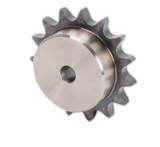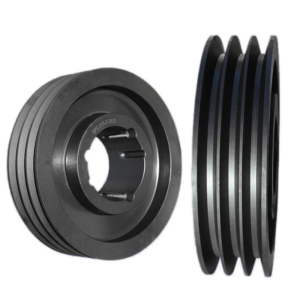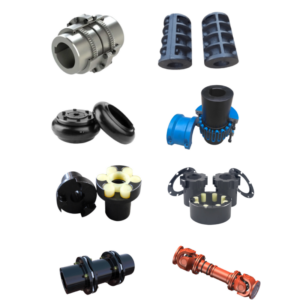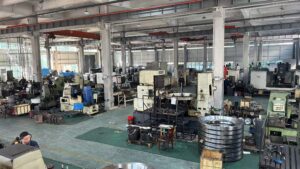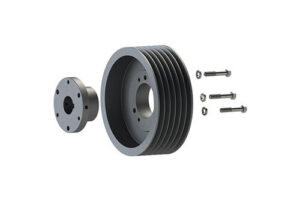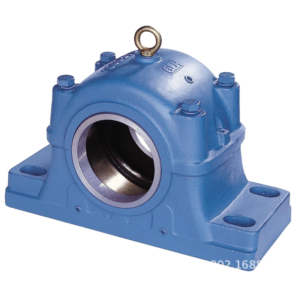Selecting the right sprocket for your factory can be a game-changer when it comes to maximizing efficiency and minimizing downtime. Whether you’re working with conveyors, assembly lines, or heavy machinery, the right sprocket can make all the difference in keeping things running smoothly. In this guide, I’ll take you through everything you need to know, from understanding the different types of sprockets and how to match them with your machinery, to evaluating the materials and sizes that will best suit your operations. We’ll also cover essential maintenance tips, common signs of wear, and how to ensure your sprockets are up to the task, so you can avoid costly mistakes and keep your factory operating at its best. Ready to make the right choice? Let’s dive in!
Understanding the Different Types of Sprockets for Factory Use
Before you can choose the right sprocket for your factory, it’s important to know what types are available and which one fits your needs best. Sprockets vary by their design, size, and application. The most common types used in industrial settings are:
• Roller Sprockets: These are the most widely used in factory environments, especially for conveying systems.
• Block Sprockets: Typically used for heavy-duty applications, like mining or steel manufacturing.
• Silent Sprockets: Designed to reduce noise, often used in environments where noise control is important.
• Specialty Sprockets: These include tapered, split, or double sprockets, suited for specific machinery and requirements.
Each type of sprocket has a unique role to play, and selecting the right one depends on the machinery you’re using and the load it needs to bear.
How to Match Sprockets with Factory Equipment and Machinery
Matching a sprocket to your equipment goes beyond just picking one that fits. It requires understanding the load, speed, and alignment of your machinery. Here’s what to consider:
• Pitch and Tooth Count: The pitch refers to the distance between the teeth on a sprocket. You’ll need to match this with the chain you’re using to ensure smooth operation. The tooth count also influences torque and speed.
• Sprocket Alignment: Ensure the sprockets are aligned properly with the chain and other components. Misalignment can cause uneven wear and tear, leading to potential breakdowns.
• Torque Requirements: For high-torque applications, choose sprockets made from materials that can handle more stress and strain.
By aligning the right sprocket with your equipment’s needs, you ensure maximum performance and minimize wear over time.
The Importance of Sprocket Material in Factory Performance
The material a sprocket is made from can drastically impact its durability and performance. Common materials for factory sprockets include:
• Carbon Steel: Ideal for general applications, carbon steel sprockets are tough and can handle moderate wear and tear.
• Stainless Steel: Best for environments that require resistance to corrosion, such as food processing or chemical plants.
• Alloy Steel: For heavy-duty use, alloy steel sprockets can withstand high loads and harsh environments.
• Plastic or Nylon: Lightweight and corrosion-resistant, these sprockets are typically used in applications where noise reduction is needed.
Choosing the right material for your sprocket is essential to ensure it meets the demands of your factory’s environment and the specific machinery in use.
Calculating Sprocket Size: A Step-by-Step Approach
Choosing the correct size sprocket is critical to ensure proper function and avoid unnecessary wear. Here’s how to calculate the right size for your needs:
• Measure the Chain Pitch: The chain pitch refers to the distance between the center of one pin to the center of the next. This measurement will help determine the sprocket’s pitch.
• Sprocket Diameter: Based on the chain and application, you’ll need to choose the appropriate diameter that aligns with the machinery’s design.
• Tooth Count: The number of teeth on the sprocket determines how it meshes with the chain and influences the gear ratio, which affects torque and speed.
By accurately calculating the size of your sprocket, you can ensure it will operate efficiently and reduce the likelihood of premature failure.
How Sprocket Pitch Affects Factory Efficiency
The pitch of a sprocket (the distance between teeth) plays a major role in factory efficiency. A smaller pitch allows for higher speed but may not handle as much load, while a larger pitch is better for high-torque applications but may operate at slower speeds. Here’s how pitch affects performance:
• Smaller Pitch: Ideal for lighter loads and faster speeds, common in precision machines and light-duty conveyors.
• Larger Pitch: Best for heavier loads and slower speeds, commonly found in industrial machinery that needs to endure high stress.
Understanding how sprocket pitch affects your factory’s operations is key to optimizing your machinery’s performance.
Common Sprocket Wear and How to Prevent It in a Factory Setting
Sprockets, like any mechanical component, wear over time. However, improper use or maintenance can accelerate this wear. Common signs of sprocket wear include:
• Tooth Wear: The most common form of wear, leading to poor chain engagement.
• Corrosion: Caused by exposure to moisture or harsh chemicals, it can weaken sprockets and affect performance.
• Cracks or Chips: These can develop due to high stress or material fatigue.
Preventing wear involves regular inspection, proper lubrication, and choosing the correct material for your environment. By staying proactive, you can extend the lifespan of your sprockets and keep your factory running smoothly.
How to Properly Maintain and Care for Factory Sprockets
Maintaining sprockets is vital for long-term factory efficiency. Here’s a quick guide on proper maintenance:
• Lubrication: Proper lubrication reduces friction and prevents unnecessary wear. Use the recommended lubricants based on your factory environment.
• Regular Inspections: Regularly check sprockets for signs of damage or wear, especially in high-stress applications.
• Cleanliness: Keep the sprocket and chain free from dirt, debris, and corrosive materials to avoid wear.
By keeping your sprockets in good condition, you can prevent breakdowns and costly repairs.
The Role of Sprockets in Power Transmission Systems
Sprockets play a crucial role in power transmission, transferring rotational energy from one part of a machine to another. The right sprocket ensures that power is efficiently conveyed from the motor to the machine’s components, reducing energy losses and improving overall efficiency.
When to Replace Factory Sprockets: Signs You Shouldn’t Ignore
Knowing when to replace a sprocket is critical to avoiding downtime. Signs that indicate it’s time for a replacement include:
• Excessive Tooth Wear: When teeth become rounded or broken, the sprocket can no longer mesh with the chain properly.
• Cracks or Chips: Structural damage can compromise the sprocket’s performance and safety.
• Poor Performance: If the machinery is running less efficiently or making strange noises, it’s a sign that the sprocket may need replacing.
How to Choose the Right Sprocket for High-Speed Factory Operations
For high-speed operations, you’ll need sprockets that can handle the increased demands. Opt for:
• Lightweight Materials: To reduce inertia and increase speed.
• High-Precision Machining: For smoother performance at higher speeds.
• Durability: Even in high-speed settings, the sprockets need to be durable enough to withstand wear and tear.
Choosing the right sprocket for high-speed operations ensures that your factory maintains both speed and reliability.
Conclusion
Choosing the right sprocket for your factory is more than just picking one that fits. It requires understanding your machinery’s needs, the type of sprocket, material considerations, and maintenance practices that will keep everything running smoothly. By making informed decisions based on these factors, you can avoid costly downtime, improve operational efficiency, and extend the lifespan of your equipment. Now that you have a comprehensive guide, you’re ready to make the best choice for your factory’s needs!

